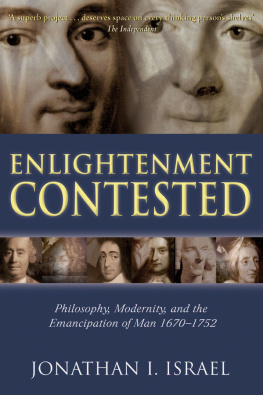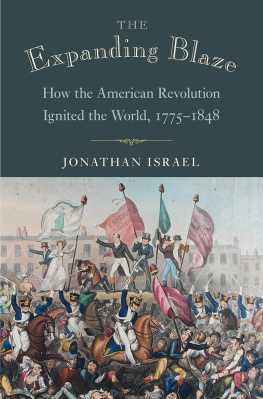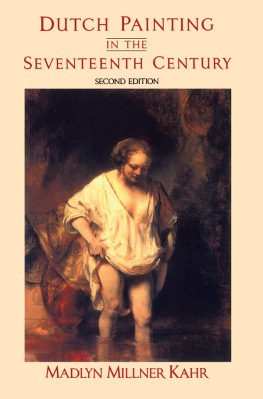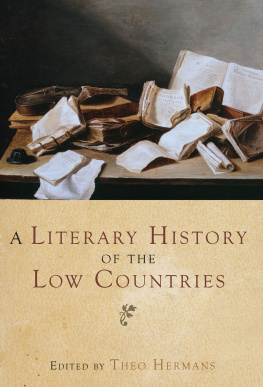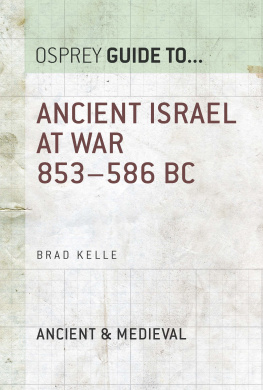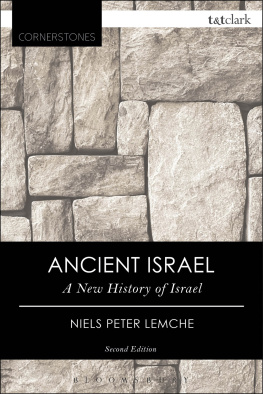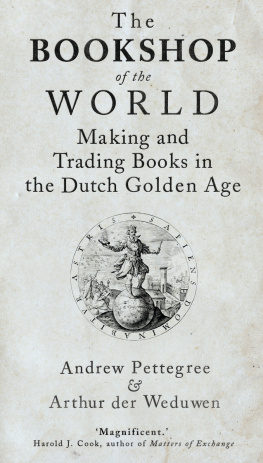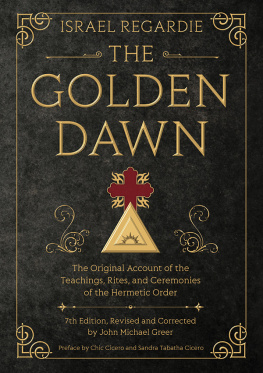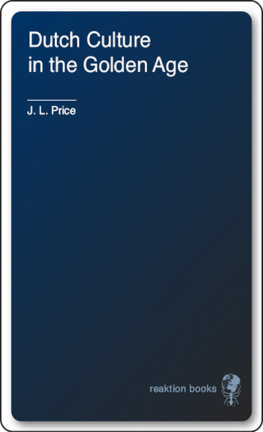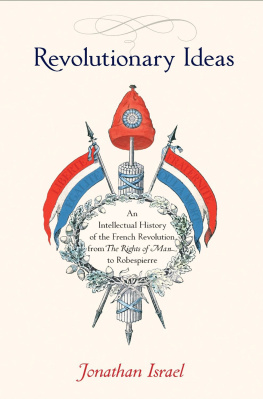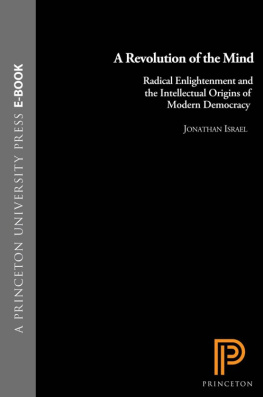JONATHAN I. ISRAEL
Oxford University Press is a department of the University of Oxford.
It furthers the Universitys objective of excellence in research, scholarship,
and education by publishing worldwide.
Jonathan I. Israel 2006
All rights reserved. No part of this publication may be reproduced, stored in
a retrieval system, or transmitted, in any form or by any means, without the
prior permission in writing of Oxford University Press, or as expressly permitted
by law, by licence or under terms agreed with the appropriate reprographics
rights organization. Enquiries concerning reproduction outside the scope of the
above should be sent to the Rights Department, Oxford University Press, at the
address above
Preface
Was the Enlightenment in essence a social or an intellectual phenomenon? The answer, arguably, is that it was both and that physical reality and the life of the mind must be seen to be genuinely interacting in a kind of dialectic, a two-way street, if we are to achieve a proper and balanced approach to this fundamental topic. Does it really matter how we interpret the Enlightenment? Surely, it does. For while it has been fashionable in recent years, above all (but not only) in the Postmodernist camp, to disdain the Enlightenment as biased, facile, self-deluded, over-optimistic, Eurocentric, imperialistic, and ultimately destructive, there are sound, even rather urgent, reasons for rejecting such notions as profoundly misconceived and insisting, on the contrary, that the Enlightenment has been and remains by far the most positive factor shaping contemporary reality and those strands of modernity anyone wishing to live in accord with reason would want to support and contribute to.
It is consequently of some concern that we almost entirely lack comprehensive, general accounts of the Enlightenment which try to present the overall picture on a European and transatlantic scale; and also that there still remains great uncertainty, doubt, and lack of clarity about what exactly the Enlightenment was and what intellectually and socially it actually involved. For much of the time, in the current debate, both the friends and foes of the Enlightenment are arguing about a historical phenomenon which in recent decades continues to be very inadequately understood and described. In fact, since Peter Gays ambitious two-part general survey The Enlightenment: An Interpretation, published in 1966, there have been hardly any serious attempts, as Gay puts it, to offer a comprehensive interpretation of the Enlightenment. Especially disturbing is that it remains almost impossible to find a reasonably detailed general account of the crucially formative pre-1750 period and that there is nowadays among general historians of the eighteenth century, as distinct from philosophers and specialists in political thought, rarely much discussion of the Enlightenments intellectual content as opposed to theaccording to most current historiographysupposedly more important social and material factors.
The purpose of this present account is to attempt to provide a usable outline survey and work of reference, enabling the general reader, as well as the student and professional scholar, to get more of a grip on what the ideas of the Enlightenment actually were, and one which at the same time denies that the social, cultural, and material factors are of greater concern to historians than the intellectual impulses but does so without simply reversing this and claiming ideas were, therefore, more crucial than the social process. Rather, my aim is to strive for a genuine balance, showing how ideas and socio-political context interact while yet approaching this interplay of the physical and intellectual from the intellectual side, that is running against the nowadays usual and generally received preference. The reason for this contrary emphasis is that the intellectual dimension, it seems to me, is by far the less well-understood side of the equation and hence at present much more in need of reassessment than the social and cultural aspects.
One of the most controversial questions about the Enlightenment in recent years has been that concerning its precise relationship to the making of revolutions, a question closely tied, in turn, to that concerning its relationship to modernity more generally. Odd though this may appear today, it was often claimed, from the late seventeenth to the mid nineteenth century, in books, pamphlets, sermons, and newspapers, that philosophy had caused, and was still causing, a universal revolution in the affairs of men. After 1789, it was usual to link this notion to the French Revolution in particular and view that vast upheaval as the realization of philosophy. But there was nothing new about bracketing philosophy with modern revolution in the early nineteenth century, or indeed earlier, and it is vital to bear in mind that in the decades before and after 1789 there were all kinds of other revolutions beside that in Francenot all violent and not all political, but all very closely associated with the unprecedented, and to many deeply perplexing, impact of philosophers and philosophy.
For some time after 1789, the French Revolution and its offshoot upheavals across the European continent and in the Americas, including by the 1820s the major revolutions in Greece and Spanish America, were usually thought of as essentially parts of a much larger and more universal revolution generated by philosophy or, to be more exact, what in the previous century had come to be known as lesprit philosophique or sometimes philosophisme. For lesprit philosophique, as a French revolutionary statesman interested in this question, Jean-tienne-Marie Portalis, pointed out in 1798, was actually something very different from philosophy in general. For most philosophers, including those embracing a strict empiricism and confining themselves to what could be deduced from lobservation et lexprience, as well as those adhering to the German idealist systems, had long sought to curtail philosophys scope and reconcile reason with religious belief. Lesprit philosophique, by contrast, while also a rsultat des sciences compares, was defined precisely by its refusal to limit philosophys scope to specified parts of reality, its sweeping aspiration to embrace and redefine the whole of our reality: revolutionary esprit philosophique, in other words, claimed, as Portalis puts it, to be applicable tout. Above all, as against other sorts of philosophy, philosophisme was une sorte desprit universel.
Post-1789 attribution of the revolution to lesprit philosophique

